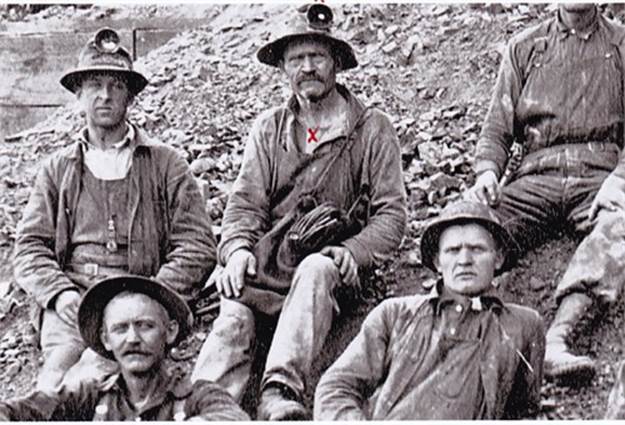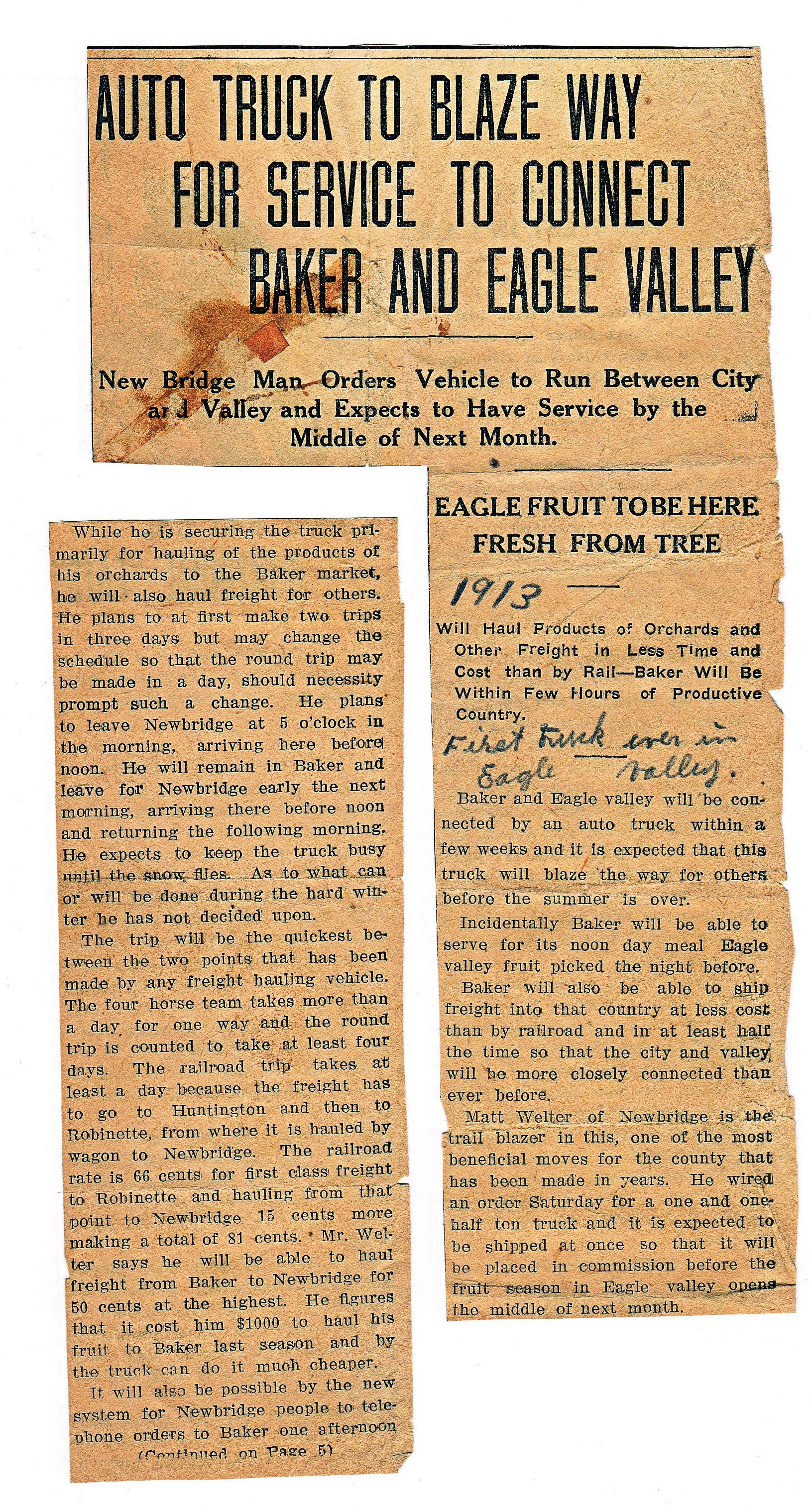Encyclopedia Dubuque
"Encyclopedia Dubuque is the online authority for all things Dubuque, written by the people who know the city best.”
Marshall Cohen—researcher and producer, CNN
Affiliated with the Local History Network of the State Historical Society of Iowa, and the Iowa Museum Association.
WELTER, Mathias
WELTER, Mathias. (Bigonville, Luxembourg, May 4, 1864--Deschutes, Oregon, Apr. 11, 1929). On April 5, 1882, the SS Switzerland, a 3 ton, 3 masted, 329' x 38' ship, arrived in New York harbor from Antwerp, Belgium. Among the passengers were Martin and Susanna Welter and their seven children. They moved directly to Dubuque, Iowa. After living in Dubuque for eight or nine years, their son, Mathias, moved to Oregon.
Welter visited Dubuque in 1901 to see his ill mother. At the time the foreman and stockholder of the Carroll B. gold mine located twelve miles from Baker City, Oregon, he brought with him some ore. Visiting A. R. KNIGHTS AND COMPANY, he had a ring made for his sister, Miss Ida Welter. (1) According to an article in the LUXEMBURGER GAZETTE, Mathias also invested in shares of other gold mines in the Sumpter area. He sold those shares for $10,000. (2)
In 1910 Welter returned to Dubuque with evidence of the potential fruit industry to be found in the Pacific Northwest. He put on display in the Cooper Building at Third and Main samples of two carloads of apples he brought with him for sale. Equally impressive was a certified statement of his year's yield on 11.5 acres.
11,000 boxes of peaches 46 cents each $5,060.00
400 boxes of pears 35 cents each 140.00
cherries 750.00
grapes 20.00
1,400 boxes of apples 1,400.00
tomatoes 150.00
7 tons of potatoes 140.00
50 head of hogs 500.00
He gathered 2,176 peaches from eighty-three trees. (4)
As a result of his orchard business near Newbridge, Oregon, Welter realized the need of getting produce to market economically. He stated that in 1912 he paid cost one thousand dollars to haul his fruit to market and was sure that trucking it would be cheaper. In 1913 he ordered a 1.5 ton truck prior to the start of the fruit picking season. He also planned to haul freight.
Welter's original plan called for leaving Newbridge at 5:00 a.m. and arriving in Baker at noon. He would leave Baker the morning to arrive in Newcastle at noon. This schedule would be kept until the start of snow. A newspaper account at the time claimed a four-horse team would take four days for the same round trip. A combination railroad/wagon route would cost eighty-one cents. Welter said he could do the same for fifty cents. His neighbors in Newbridge could telephone order to Baker one afternoon and have their purchases delivered the following day.
Note: At least two Iowans played a role in the fruit industry of the Pacific Northwest. In addition to Matt Welter who advertised the area's potential, Henderson Lewelling must be remembered. Leaving the area around Bentonsport in southeast Iowa, Lewelling introduced the Bing cherry to Oregon.
---
Source:
1. "Likes the Far West," Dubuque Daily Telegraph, March 18, 1901, p. 5. Online: http://news.google.com/newspapers?id=fDdBAAAAIBAJ&sjid=y6gMAAAAIBAJ&dq=matt-welter&pg=2346%2C121808
2. Nancy Welter. E-mail, December 5, 2013
3. "Fruit Farming in Oregon," Telegraph Herald, November 20, 1910, p. 11. Online: http://news.google.com/newspapers?id=_rJCAAAAIBAJ&sjid=XqsMAAAAIBAJ&dq=welter%20fruit%20dubuque&pg=1338%2C7793888





